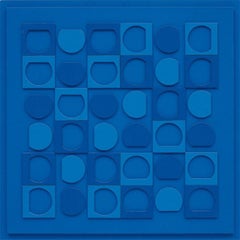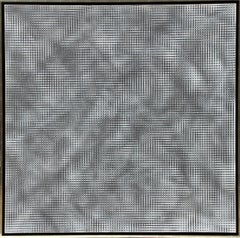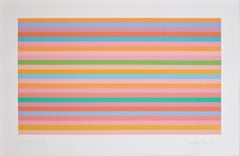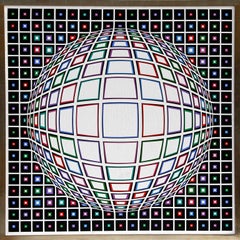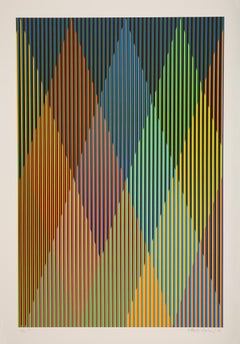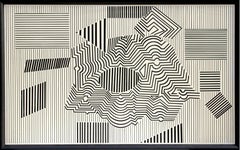Op Art
The Op art movement emerged in the 1960s, mirroring the counterculture of the time in its embrace of visual trickery, graphic shapes and bright colors.
Spreading across Europe and the Americas, the style — whose name is short for “optical art” — influenced advertising, fashion and interior design before fading in the early ’70s.
Op art remained significant, however, for artists and scientists interested in the nature of perception. And today, it’s seeing a resurgence of interest from collectors and interior designers.
Op artists played with the principles of perception, manipulating line, shape, patterns and color to create the illusion of depth and movement. They drew on and evolved methods developed by past movements, from Impressionism to Abstract Expressionism, to produce intense visual experiences.
All the Op artists shared a focus on the gap between what is and what we perceive. Each, however, had a distinct approach to the issue and a unique visual style.
On 1stDibs, find a collection of Op art that includes works by Josef Albers, Bridget Riley, Jesús Rafael Soto and more.
1970s Op Art
Wood, Paint
21st Century and Contemporary Op Art
Canvas, Oil
2010s Op Art
Screen
1980s Op Art
Oil
2010s Op Art
Screen
1950s Op Art
Acrylic
1970s Op Art
Oil
2010s Op Art
Ink, Acrylic, Cardboard
Early 2000s Op Art
Lithograph
2010s Op Art
Ink, Acrylic, Cardboard
2010s Op Art
Ink, Acrylic, Cardboard
2010s Op Art
Cardboard, Ballpoint Pen
1970s Op Art
Canvas, Acrylic
1980s Op Art
Canvas, Oil
